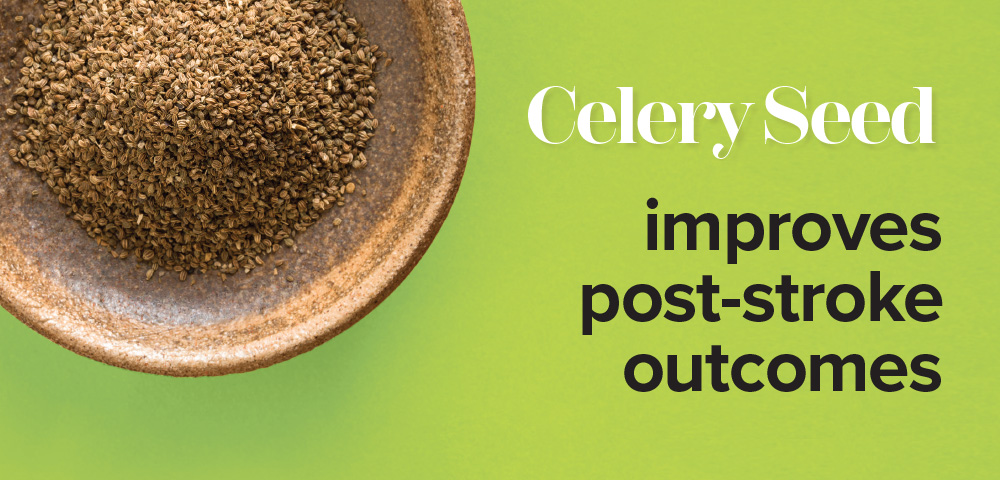
THE OFTEN-DEEMED BORING VEGGIE – CELERY – IS OVERLOOKED FOR ITS HEALTH BENEFITS.
From seed to stalk, celery is loaded with antioxidants, including vitamin C, beta-carotene, and flavonoids, packs a punch of fibre, and is rich in phytonutrients. One concentrated phytonutrient found in celery seed, 3-n-butylphthalide (NBT), is thought to promote heart health, act as an anti-inflammatory, protect mitochondrial function, regulate immunity, and support brain health, especially post-stroke.
For years, NBT has been known for its ability to support arterial health and promote healthy blood flow and blood pressure. It has shown promise in the associated anxiety and depression that can occur in people who have high blood pressure. Psychological conditions can also exacerbate hypertension, making NBT a worthwhile nutrient to consider for the one in four Canadians dealing with these conditions. Research also suggests that butylphthalides can improve cognition and memory. NBT has been shown to improve cognitive impairment, such as that found in vascular dementia and Parkinson’s disease, without adverse effects.
A stroke is caused by a disruption in blood flow to a part of the brain and occurs when a blood vessel is either blocked or ruptures. The resulting lack of blood flow deprives the brain tissue of oxygen and glucose, leading to brain cell death. And the longer the deprivation, the more permanent the damage to the brain will be.
What may be the most impressive are the results from several recent clinical trials illustrating that butylphthalides, along with prompt treatment, may improve outcomes after a stroke.
Although stroke is preventable, it still impacts millions of Canadians every year. Every 10 minutes, someone will experience a stroke, and it is the leading cause of adult disability in Canada. Because of its large impact on human health and well-being, research into ways to mitigate permanent post-stroke symptoms is essential. Most medications that treat post-stroke symptoms come with side effects, so the recent studies on the benefits of NBT from celery seed deserve attention.
A recent clinical trial found that participants taking butylphthalide for 90 days after a stroke were 70% more likely to have less severe neurological symptoms compared to the placebo group. After three months of butylphthalide treatment, participants who had a mild-to-moderate stroke and had no remaining symptoms, or who had a slight disability after a severe stroke, were more likely to function normally. It did not, however, prevent recurrent strokes or brain bleeds.
NBT is an approved treatment for stroke in China, but in North America, more research is still required to confirm its efficacy in human clinical trials. And although the drug used in the mentioned studies is not exactly the same as the butylthalide found in supplements, results like these reveal the power of plants and their medicinal compounds.












